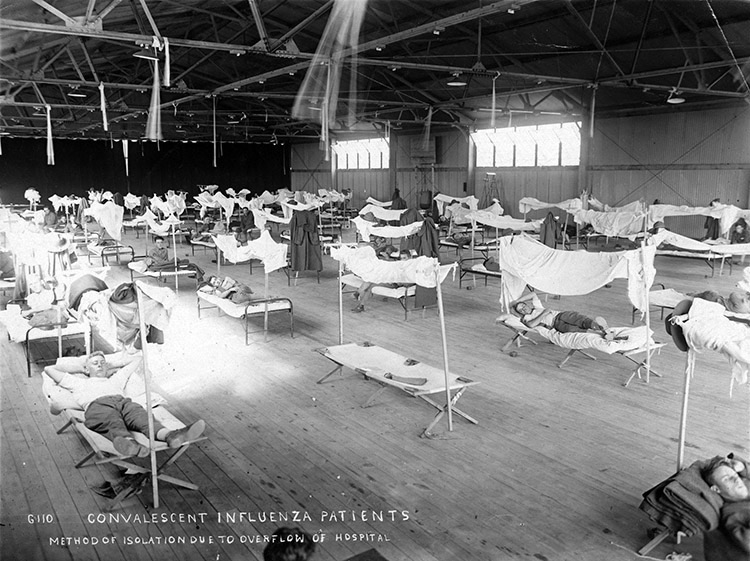
Casey Kayser, assistant professor of English and director of the Medical Humanities Program, and history professor Tricia Starks have been awarded a $170,000 Summer Teaching Institute grant from the National Endowment for the Humanities for their project, “Pandemics in History, Literature, and Today.”
The duo will head an interdisciplinary team of university, medical and community experts to take participating institute teachers through the 1918 global influenza pandemic, discuss the history and artistic responses to the devastating events, and consider how to integrate these lessons into history, science and literature curricula.
 |
|
Images of the COVID-19 / corona virus. Photo courtesy of the University of Arkansas. |
“This institute will provide a perfect opportunity to showcase the ways that the humanities are important to both science and our lives,” said interim Chancellor Charles F. Robinson. “As a historian myself, I notice I often look to the past to understand our current moment.”
Starks agreed, adding, “This is a fantastic opportunity to showcase the dynamic program professor Kayser is creating here at the U of A. Working with educators to bring medical humanities into classrooms will ultimately help to make better doctors, scientists and citizens in the future.”
Starks said expert consultants who will participate in the institute include:
- Amy L. Allen, associate librarian with tenure and university archivist at the U of A
- Todd Cleveland, associate chair and director of graduate studies in the Department of History
- Micah Hester, chair of the Department of Medical Humanities and Bioethics at the University of Arkansas for Medical Sciences
- Susan Kendrick-Perry, operations administrator and transcription supervisor for the Pryor Center for Arkansas Oral and Visual History
- William F. McComas, director of the Project to Advance Science Education and holder of the Parks Family Endowed Professorship at the U of A
- Coty Nichols, director of the Fayetteville High School Project Graduation Initiative and teacher of world history, African American history, United States history as well as psychology and marine science at the Fayetteville Virtual Academy
- Angela Scott, leader of the literature and medicine curriculum at UAMS
- Virginia Siegel, coordinator of Arkansas Folk and Traditional Arts, housed in the U of A Libraries
Information on application procedures will be available soon on the U of A Humanities Center website.
Questions and queries can also be sent to Tricia Starks at tstarks@uark.edu.
About the University of Arkansas: As Arkansas' flagship institution, the U of A provides an internationally competitive education in more than 200 academic programs. Founded in 1871, the U of A contributes more than $2.2 billion to Arkansas’ economy through the teaching of new knowledge and skills, entrepreneurship and job development, discovery through research and creative activity while also providing training for professional disciplines. The Carnegie Foundation classifies the U of A among the top 3% of U.S. colleges and universities with the highest level of research activity. U.S. News & World Report ranks the U of A among the top public universities in the nation. See how the U of A works to build a better world at Arkansas Research News.
Topics
Contacts
Andra Liwag, director of communications
Fulbright College of Arts and Sciences
479-575-4392, liwag@uark.edu
Tricia Starks, professor and director
University of Arkansas Humanities Center
479-575-7592, tstarks@uark.edu